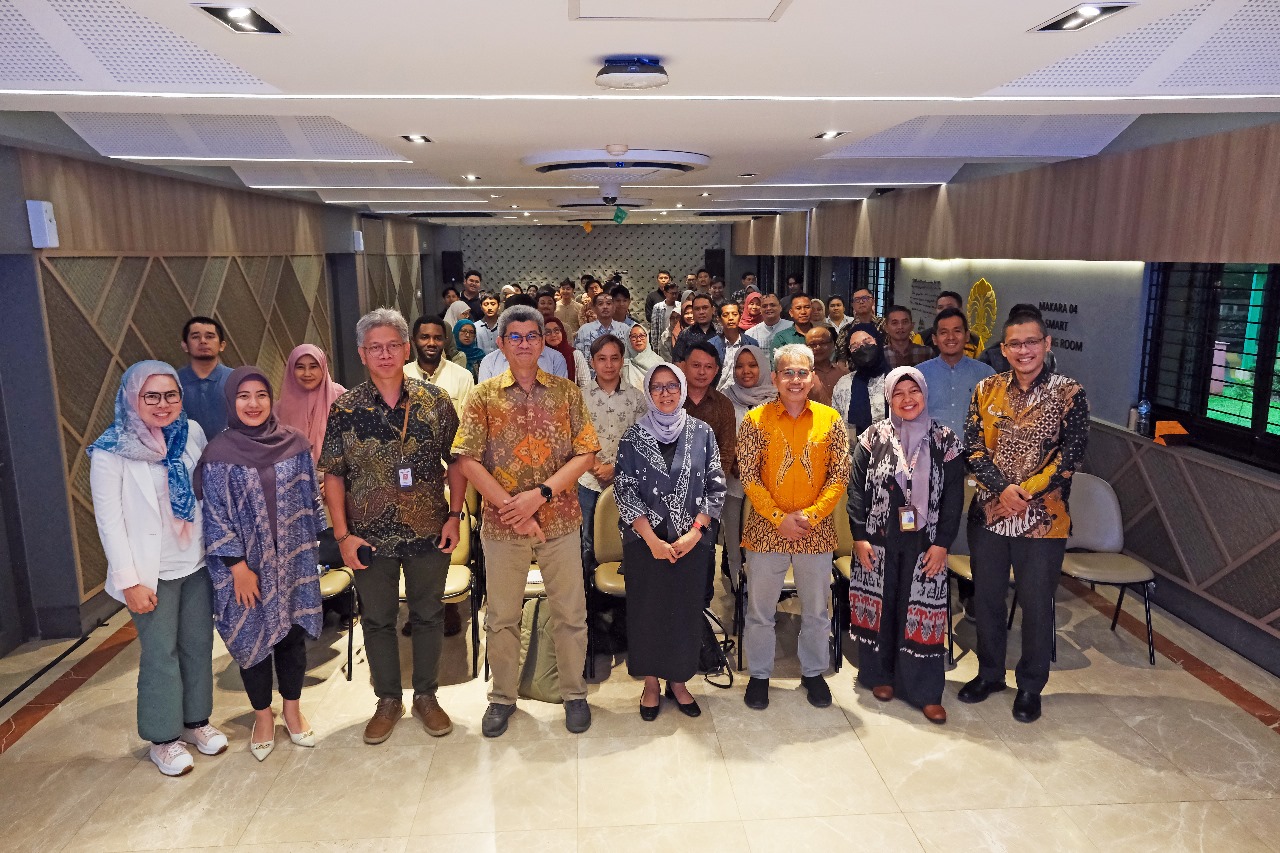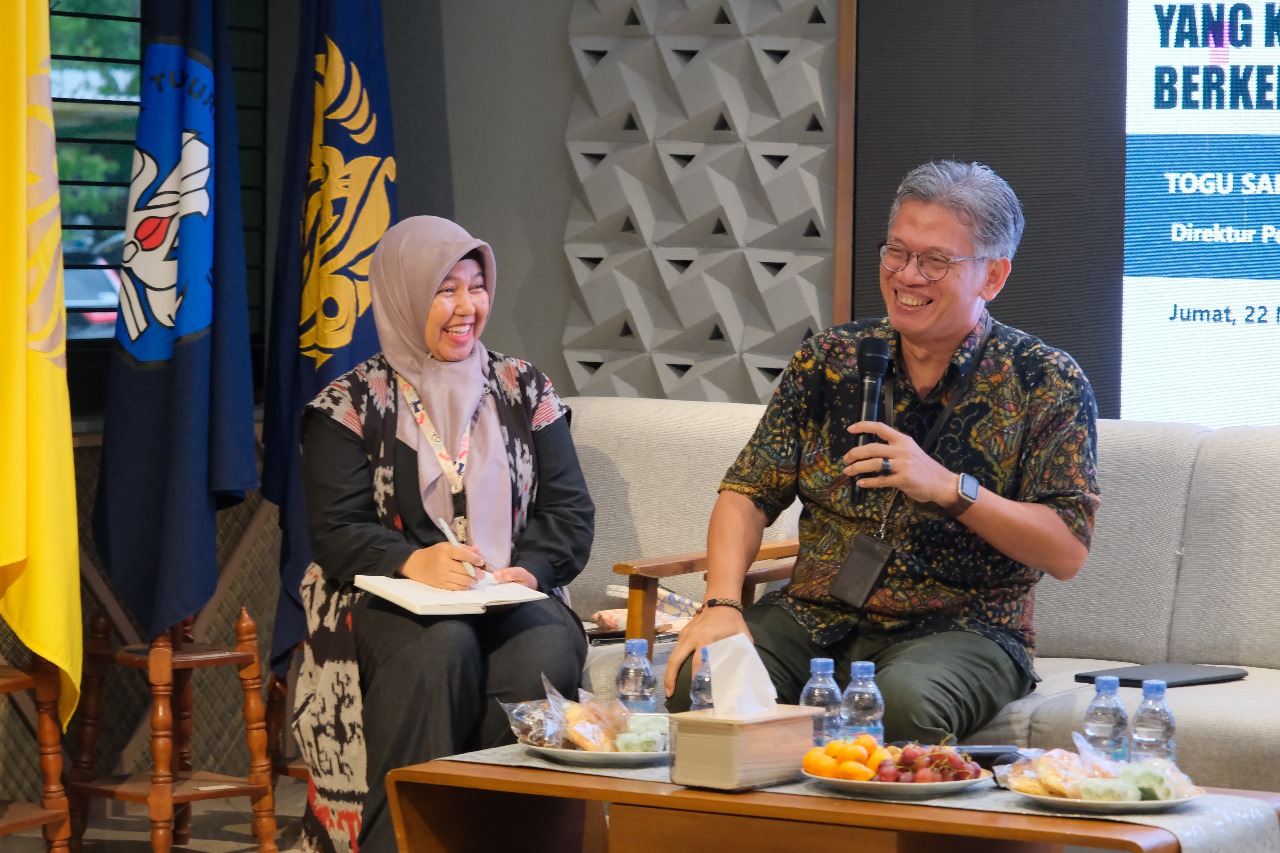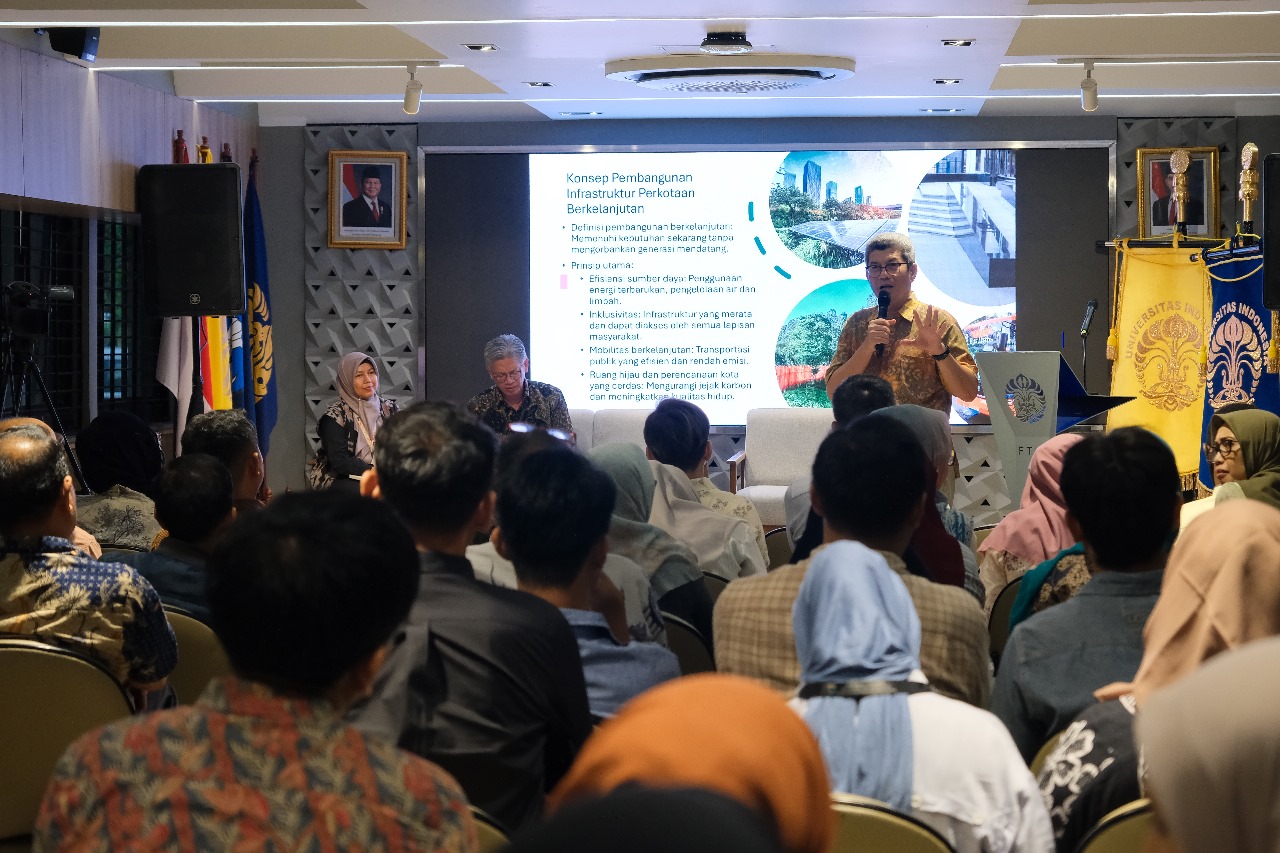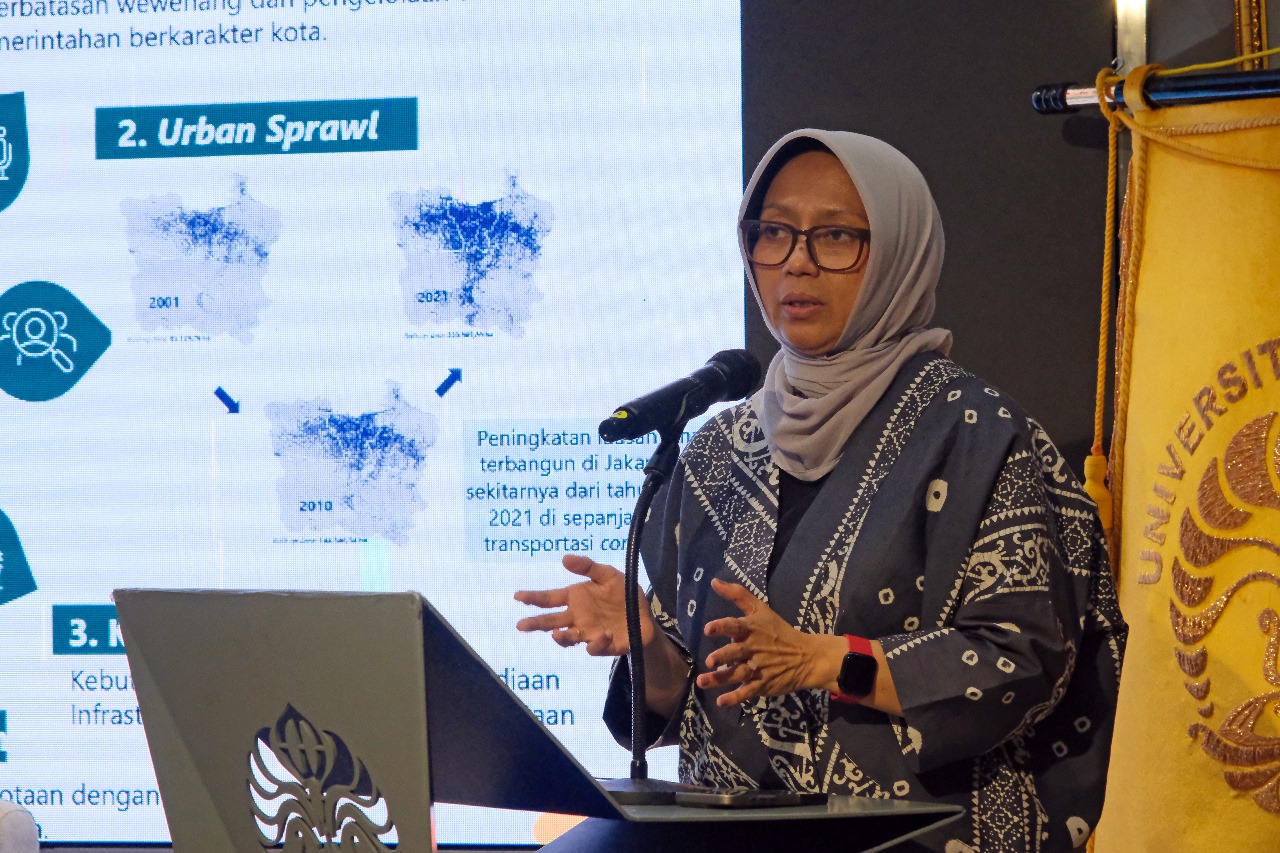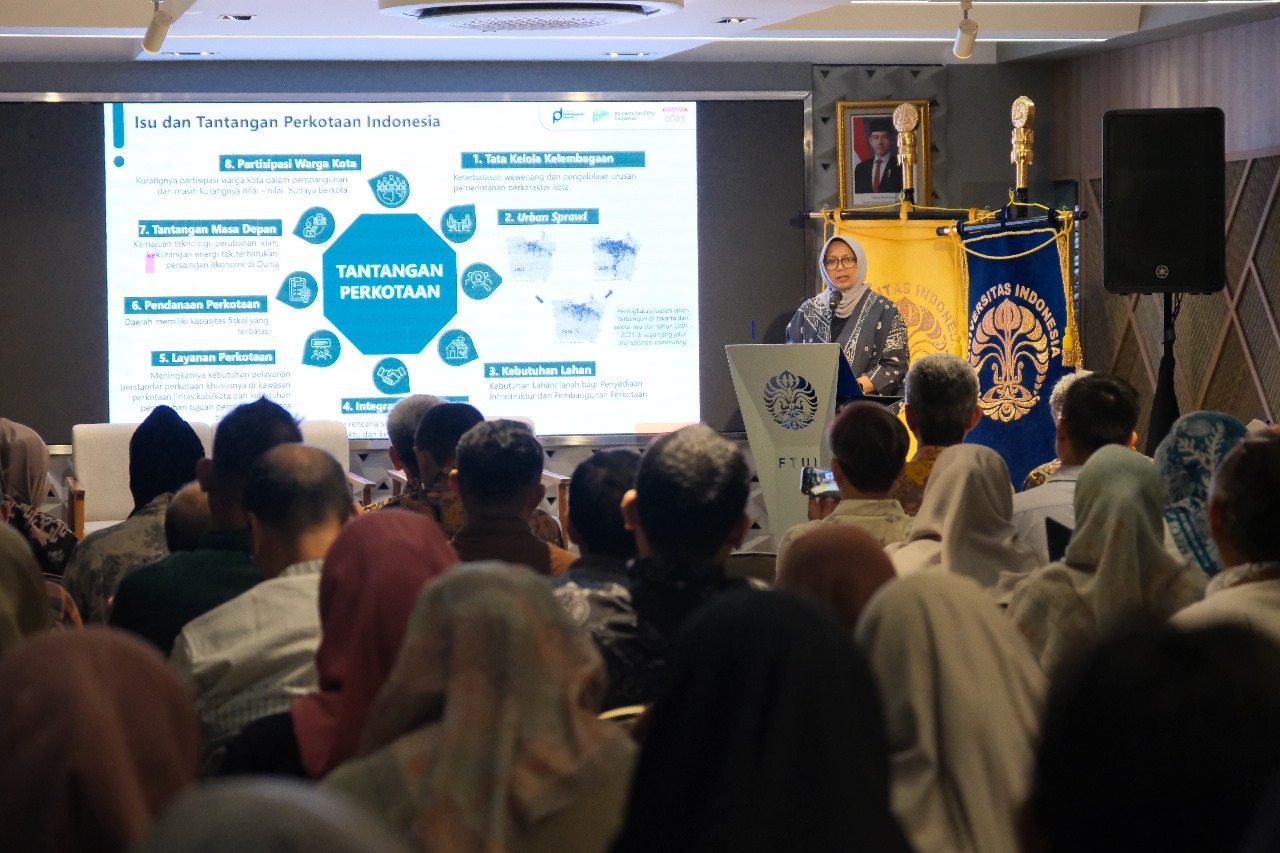The event took place on November 22, 2024, in the Smart Meeting Room, FTUI Dean’s Building, featuring three speakers: Mia Amalia, S.T., M.Si., Ph.D. (Deputy for Planning and Land Affairs, IKN Authority), Togu Pardede, S.T., MIDS. (Director of Regional Development, Bappenas), and Prof. Ir. R. Jachrizal Sumabrata, M.Sc.Eng. (Professor, Department of Civil Engineering, FTUI). The session was moderated by Ir. Ova Candra Dewi, S.T., M.Sc., Head of the Urban and Regional Planning Study Program, FTUI.
Opening the talk show, Tri Dewi Virgianti, Deputy for Regional Development at Bappenas, highlighted the need for greater awareness of national development planning across all societal elements. “Discussion forums like this are essential to educate the public on the importance of well-thought-out planning in urban development,” she said.
Chairul Hudaya, S.T., M.Eng., Ph.D., IPM, Head of FTUI’s Department of Interdisciplinary Engineering, emphasized that resolving Indonesia’s complex urban challenges requires multidisciplinary solutions. “FTUI established the Department of Interdisciplinary Engineering to address the dynamics of VUCA (Volatility, Uncertainty, Complexity, and Ambiguity) through comprehensive problem-solving approaches,” he remarked.
The first speaker, Mia Amalia, presented the concept of sustainable development for Indonesia’s new capital, Ibu Kota Nusantara (IKN). She focused on balancing density and accessibility through public transport and pedestrian pathways. “The core concepts of IKN include a Forest City, Sponge City, and Smart City, supported by key performance indicators such as low carbon emissions, safety, affordability, connectivity, and efficiency driven by technology,” she explained.
IKN’s targets include 10-minute access to public facilities, 70% green spaces, 80% public transport use, and transit hubs within 500 meters. The development aims to promote socioeconomic well-being, environmental preservation, transportation connectivity, urban infrastructure, and information technology to create a resilient, environmentally friendly, accessible, and future-ready city.
The second speaker, Togu Pardede, addressed Indonesia’s urban challenges, such as ineffective institutional governance and expanding urban sprawl, with significant increases in built-up areas in Jakarta and its surroundings over the past two decades.
“The need for infrastructure and development land is pressing, yet planning integration remains weak due to discrepancies in timelines and authorities. Moreover, increasing urban service demands, particularly in areas spanning multiple regions, must align with Sustainable Development Goals (SDGs), despite limited regional fiscal capacity,” Togu elaborated.
He also highlighted challenges including climate change impacts, reliance on non-renewable energy, and fierce global economic competition. Strengthening cultural and community participation in urban development is crucial, requiring integrated solutions and cross-sector collaboration for sustainable urban management.
The third speaker, Prof. Jachrizal Sumabrata, discussed the role of technology in sustainable infrastructure development, encompassing smart city technologies like the Internet of Things, big data, and artificial intelligence for efficient urban management.
“Green infrastructure concepts are implemented through eco-friendly buildings and sustainable urban planning. Renewable energy applications, including solar panels, wind energy, and energy-saving technologies, complement smart mobility initiatives like electric vehicles and data-driven transportation management,” Prof. Jachrizal explained.
Public service digitization is also optimized through digital platforms to enhance efficiency and accessibility.
On a separate occasion, FTUI Dean Prof. Dr. Ir. Heri Hermansyah, S.T., M.Eng., IPU, stated, “FTUI is committed to fostering strategic collaboration among academia, government, and practitioners to create innovative and inclusive urban spaces. Through this talk show, we hope the ideas and synergies generated will serve as a foundation for sustainable urban transformation in Indonesia. Our collaboration with Bappenas RI is a tangible step toward realizing a vision of urban development that is not only functional but also adds value to society.”
***
Office of Public Communications
Faculty of Engineering, Universitas Indonesia

